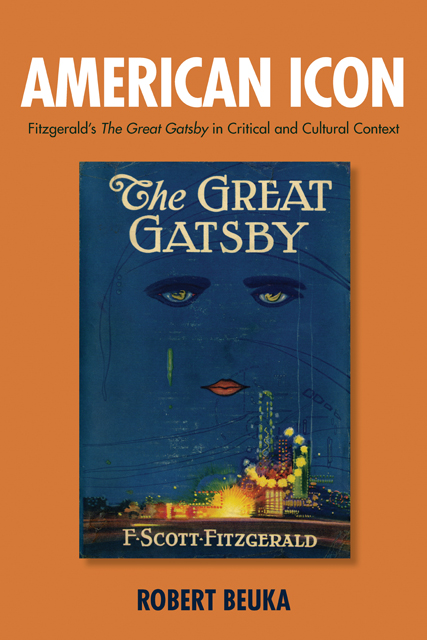Book contents
- Frontmatter
- Dedication
- Contents
- Preface
- 1 A Book of the Season Only: Early Reactions to The Great Gatsby
- 2 A Green Light: The “Fitzgerald Revival” and the Making of a Masterpiece, 1940–59
- 3 The Gatsby Industry: Tracing Patterns and Pushing Boundaries in the Criticism of the Sixties and Seventies
- 4 Gatsby, in Theory (and Out): New Paradigms in the Eighties and Nineties
- 5 Twenty-First-Century G: The Great Gatsby as Cultural Icon
- Works Cited
- Index
1 - A Book of the Season Only: Early Reactions to The Great Gatsby
Published online by Cambridge University Press: 11 February 2023
- Frontmatter
- Dedication
- Contents
- Preface
- 1 A Book of the Season Only: Early Reactions to The Great Gatsby
- 2 A Green Light: The “Fitzgerald Revival” and the Making of a Masterpiece, 1940–59
- 3 The Gatsby Industry: Tracing Patterns and Pushing Boundaries in the Criticism of the Sixties and Seventies
- 4 Gatsby, in Theory (and Out): New Paradigms in the Eighties and Nineties
- 5 Twenty-First-Century G: The Great Gatsby as Cultural Icon
- Works Cited
- Index
Summary
A Mixed Bag: The Initial Reviews
THE GREAT AMERICAN NOVEL: What does this phrase signify? Is there such a thing, and if so, what is it? In the roughly one and a half centuries in which Americans have produced novels equipped to stand the test of time, few could be said to have the qualities to elevate them into such rarefied air. Critical consensus would put F. Scott Fitzgerald’s The Great Gatsby on the short list of candidates for the title of Great American Novel — alongside such works as Melville’s Moby Dick, Twain’s The Adventures of Huckleberry Finn, and Hawthorne’s The Scarlet Letter. It certainly seems safe to say that no other American novel has become a part of our cultural lexicon so fully as Fitzgerald’s masterpiece. The novel’s aura of glamour, its modern romanticism, and its questioning of core American values have made it, in the eyes of many, the quintessential American novel. The consensus view of Gatsby as an American masterpiece is continually reinforced by, among other things, its presence in the classroom: Taught in high school English classes, undergraduate surveys of American literature, and graduate seminars, The Great Gatsby remains perpetually part of our cultural conversation. Partly as a result of its omnipresence in the educational system, the book also puts up remarkable sales numbers each year. As recently as 2002, a half-million paperback copies of the novel were sold in a single year (Goldstein). The paperback also tends to hover within the top 150 of online bookseller Amazon.com’s best sellers, and this for a novel published over eighty years ago. The Modern Library’s famous list, from back in 1998, of the “100 Best Novels” written in English in the twentieth century ranked The Great Gatsby as number two, behind only James Joyce’s Ulysses. And no less a cultural barometer than the search engine Google makes Gatsby’s ongoing relevance clear: Google “Gatsby,” and you will bring upwards of ten million hits.
Given its great critical and popular success, it may be difficult for the reader of today to imagine a time when The Great Gatsby was not a best seller, or a time when the novel earned indifference and even scorn, as well as praise, from the critics.
- Type
- Chapter
- Information
- American IconFitzgerald's <i>The Great Gatsby</i> in Critical and Cultural Context, pp. 1 - 21Publisher: Boydell & BrewerPrint publication year: 2011



